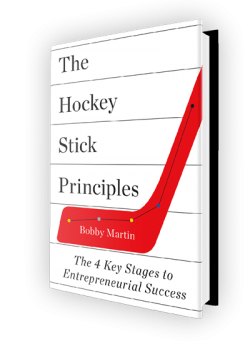I’m a loud-mouth who provides advice about things I know little to nothing about. For example, without thinking, I once tried to diagnose my friend Harrison’s injured shoulder—forgetting that he’s an orthopedic surgeon who didn’t seek or need MY medical advice. I’m almost positive my advice given was way wrong, but he just smiled and said thanks.
But the worst advice I ever gave took place 25 years ago. My friend Alan was the bassist in a popular rock band, Far Too Jones. These guys played gigs for a living, so they were quite accomplished. One evening, while hanging out with some friends, I provided Alan advice on how to write a “catchy” song. “U2 has transitions that hold your attention, and each song is so different from the other that….blah, blah, blah… you guys should try that…blah blah.” Alan is a super-nice guy with a great sense of humor and retorted, “Oh thanks Bob, I never thought of that.” LOL. Today I’m taking guitar lessons, and I can’t even maintain basic rhythms. (I’m sure U2 would be impressed.)
My point is that just like with my medical diagnosis and my attempt at songwriting, everyone has some unnecessary advice about how to run your startup—even though most have never done it successfully. Or if they have, they haven’t built a startup like YOUR startup. So ignore most advice, just like how Harrison and Alan ignored mine. Most advice sucks.
But you should take some advice. When you do, here are three tips on taking it:
1. Ignore those who have never built a startup: Many who work for some big company or just got an MBA think they know a lot about business in general. Maybe they do? But ignore them like Harrison and Alan ignored me. They’ll just confuse you.
2. Your gut instincts about your startup are better than “successful” people’s gut instincts about your startup: My brother-in-law, Brad, founded Local Eye Site, a creative job board for the eye care industry. I’ve given Brad lots of solicited and unsolicited advice throughout the years. I’ve had some success in the startup world, but I don’t know the eye care industry nor how to sell a $350 product nearly as well as Brad does. So today, when I think back to my advice for him, I’m glad he didn’t take it. His own gut instincts were way better than mine. My own success doesn’t translate to his success. Never forget that for your own startup.
3. ”Calibrate” the advice you do get: As I said, you shouldn’t ignore all advice; I’m saying you should ignore most advice. My friend Lee Demby helped start and grow an executive profile firm, BoardRoomInsiders. He taught me how he “calibrates” advice based upon the background and skills of the person providing the advice: “I consider your advice in this situation to have 70 percent value to me, but other advice may get 10 percent value for that particular situation.” Smart thinking.
Here’s the bottom-line: When it comes to deciding what to do and how to do it, trust your gut instinct 80percent and use advice from others for the last 20 percent. But remember: Ignore most advice. Calibrate the good advice.
Sign up to get more great insights directly to your inbox.
As a special bonus, you'll also immediately get access to my inside analysis of what made 172 diverse companies achieve take-off revenue growth.

